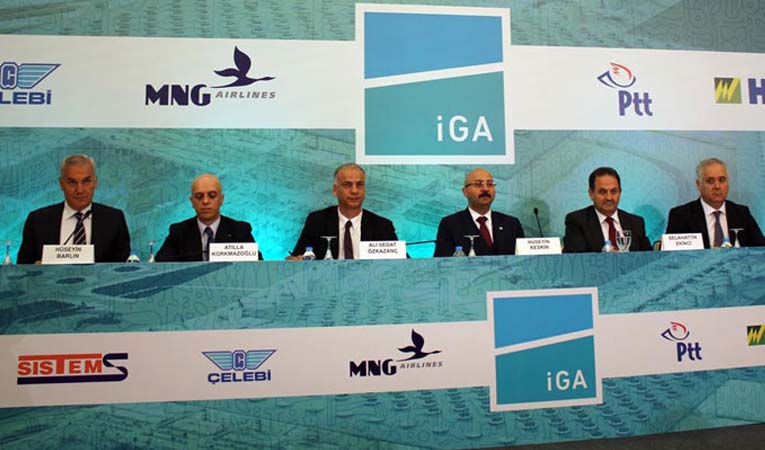
-
BIST 100
 11150,90%-1,27En Düşük11150,90En Yüksek11324,76
11150,90%-1,27En Düşük11150,90En Yüksek11324,76 -
DOLAR
 42,93%0,08Alış42,9315Satış42,9358En Yüksek42,9495
42,93%0,08Alış42,9315Satış42,9358En Yüksek42,9495 -
EURO
 50,54%-0,13Alış50,5220Satış50,5520En Yüksek50,6744
50,54%-0,13Alış50,5220Satış50,5520En Yüksek50,6744 -
EUR/USD
 1,18%-0,12Alış1,1759Satış1,1760En Yüksek1,1792
1,18%-0,12Alış1,1759Satış1,1760En Yüksek1,1792 -
ALTIN
 5996,38%-4,09Alış5996,07Satış5996,70En Yüksek6278,75
5996,38%-4,09Alış5996,07Satış5996,70En Yüksek6278,75
-
BIST 100
 11150,90%-1,27En Düşük11150,90En Yüksek11324,76
11150,90%-1,27En Düşük11150,90En Yüksek11324,76 -
DOLAR
 42,93%0,08Alış42,9315Satış42,9358En Yüksek42,9495
42,93%0,08Alış42,9315Satış42,9358En Yüksek42,9495 -
EURO
 50,54%-0,13Alış50,5220Satış50,5520En Yüksek50,6744
50,54%-0,13Alış50,5220Satış50,5520En Yüksek50,6744 -
EUR/USD
 1,18%-0,12Alış1,1759Satış1,1760En Yüksek1,1792
1,18%-0,12Alış1,1759Satış1,1760En Yüksek1,1792 -
ALTIN
 5996,38%-4,09Alış5996,07Satış5996,70En Yüksek6278,75
5996,38%-4,09Alış5996,07Satış5996,70En Yüksek6278,75
- Anasayfa
- Sektörler
- Diğer Sektörler
- It Is Difficult To Get Even One Percent
It Is Difficult To Get Even One Percent
In banking, it takes TL 8.34 billion in additional assets and TL 5.146 billion in additional deposits in order to gain a market share of 1 percent. It is even more difficult in clothing for produce...
In banking, it takes TL 8.34 billion in additional assets and TL 5.146 billion in additional deposits in order to gain a market share of 1 percent. It is even more difficult in clothing for producers who are looking to the global market. A share of 1 percent of the $1.5 trillion global market means an increase of at least $1 billion in additional turnover. Things are extremely tight in sectors such as white goods, GSM and beer, where the players are large and their shares clear. The leading companies in these sectors can open up space for themselves through acquisitions. There are those who are trying to gain market share by investing millions of dollars in technology and innovation. Experts say that the chances of new entrants into these sectors where everything is very tight being able to gain market share have declined considerably.
“At Akçansa we have a foreign partner. Our market share is 22 percent. In terms of growth in Turkey, when we think of the point that we have reached then there isn’t much farther that we can go.”
These words belong to Ahmet Dördüncü, CEO of Sabancı Holding, one of the largest groups in Turkey, and are a striking demonstration of how tight things have become in some sectors…
It is a fact that in sectors where there are large players and the market shares are clear – such as GSM, biscuits, beer, pharmaceuticals and consumer durables – the competition to gain market share has really heated up.
In banking, it takes TL 8.34 billion in additional assets to gain a market share of 1 percent. In electronics retailing, it takes an increase of $100 million in turnover to gain market share, while in pharmaceuticals it is $95 million and in white goods €22 million. Most companies can only secure an increase in market share by opening up to foreign markets or making important acquisitions. There are those who increase their market share solely through domestic operations. Even players who are sector leaders can try this in order to gain market share. Experts say that new entrants in these very tight markets have such a small chance that it is virtually non-existent.
.gif) Leaders In Difficulties
Leaders In Difficulties
In most of the sectors which are tight, one of the main factors which make growth difficult is that, almost since the year when they were founded, the leading companies have not relinquished first place to anyone. In biscuits, Ülker has been the leader for 56 years with a lion’s share of 60 percent and in chocolate for 27 years. In beer, Efes Pilsen has been leader for 40 years with 83 percent, while in white goods Arçelik has been leader for 53 years with a share of 54 percent, and in GSM, it has been Turkcell for 14 years. The fact that most of these companies control more than half of the market makes it difficult for them to increase their market shares. Management consultant Tufan Darbaz notes that in every sector, such as automotives, cement and white goods, where the product life cycle has reached a certain point, it will be difficult to increase market share. He says that in these sectors it is only possible to grow through acquisitions and adds: “Our major groups have now reached a point both in terms of capital and in human resources where they can buy companies in their fields in other countries. I think that, in order to increase market share, it is necessary to make acquisitions knowing the acquisition opportunities created by the crisis that began in 2008.”
They Grew Through Opening Up To The Rest Of The World
Ülker is an example of the best practitioners of the strategy identified by Darbaz of increasing market share through acquisitions. The group bought Godiva, which had attracted the attention of global giants such as Nestle, Mars and Starbucks, and as a result succeeded in rescuing itself from the problems it faced on the domestic market.
The white goods giant Arçelik has focused on foreign sales. It has secured support for its sales on the tight domestic market by increasing its share of the Western and Eastern European market, which is its main market and accounts for 40 percent of the global white goods market. In 2009, foreign sales accounted for 52 percent of the company’s sales. Efes Pilsen has supported its domestic growth by establishing its own operations in Russia. Moldova, Serbia, Kazakhstan and Georgia.
Management consultant Cengiz Solakoğlu says that the leader has a market share at least twice as large as that of its closest rival and that the cost of increasing market share in these sectors is extremely high.
Müşfik Cantekinler/Head Of The Corporate Finance Department At Ernst & Young
Which Sectors Will Grow Through Acquisitions?
Dangerous Sectors
In certain sectors, it is becoming increasingly difficult to gain market share. This is particularly true in sectors in which there are companies with similar operational and financial strength. I think that these sectors are headed by banking and insurance. In the current situation, it is only possible to make significant progress in the asset rankings by mergers and acquisitions. It is a similar situation in insurance. In current conditions, the sales and distribution structure, which is linked to the bank channels and agencies, does not allow any significant increases in market shares in the short-term to medium term.
How Can The Situation Change?
The pharmaceuticals sector, particularly patented pharmaceuticals, requires significant research budgets. While the fact that it is difficult to differentiate one’s products in generic pharmaceuticals means that there is no possibility of rapid changes in positions. We see that in both the retail sector and technology we have come to the end of the era of rapid increases in market share. In the future, rapid changes in balances will only be possible through mergers and acquisitions. I think that, as a result, in the near future we shall see an emphasis on mergers and acquisitions in the banking, insurance and pharmaceuticals sectors.
Şeyma Öncel Bayıksel
[email protected]
Türkiye ve dünya ekonomisine yön veren gelişmeleri yorulmadan takip edebilmek için her yeni güne haber bültenimiz “Sabah Kahvesi” ile başlamak ister misiniz?






